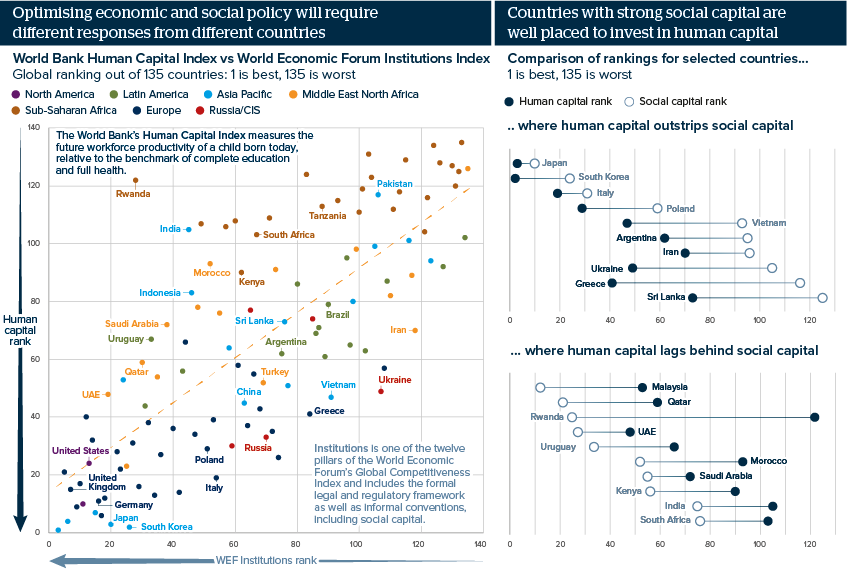Social cohesion is vital to promote long-run growth
Strong social and human capital can offset costs such as technologically stranded workers
Source: World Bank Human Capital Index; World Economic Forum Global Competitiveness Index
Outlook
Reports from the World Bank on the changing nature of work and from the Pathways for Prosperity Commission on inclusive growth argue that countries need to maximise their human capital to fulfil the opportunities offered by digitalisation.
Exploiting human capital (the skills, knowledge and capabilities of a workforce) depends on social capital (personal and social relationships, social norms and civic participation in society). Social capital provides the social cohesion that licenses governments to invest in the health and education of children, particularly to develop advanced cognition, social behaviour and adaptability, all regarded as critical for developing the human capital that promotes growth.
Countries with higher social than human capital will find it easier to invest in people, those in the reverse position will struggle.
Impacts
- Longer lives and workforce churn make lifelong learning key, but training needs to focus more on the low skilled than the already skilled.
- Social assistance and insurance schemes can mitigate the losses from worker reallocation as workers will more securely aim for new skills.
- E-monitoring of teachers and health workers in India and Kenya has improved outcomes: such successes need to be scaled up.
See also
- Economics is diversifying and focusing on real impact - Oct 15, 2019
- Digitalisation will drive cross-border services trade - Oct 15, 2019
- Valuing online choices can aid policymakers’ decisions - May 8, 2019
- Future workers will need to adapt continuously - Jan 16, 2019
- Past trend shrinks hope for major fall in inequality - Dec 13, 2018
- Prospects for the global economy in 2019 - Nov 30, 2018
- Digitalisation will divide and drive economic progress - Jul 17, 2018
- More graphic analysis
